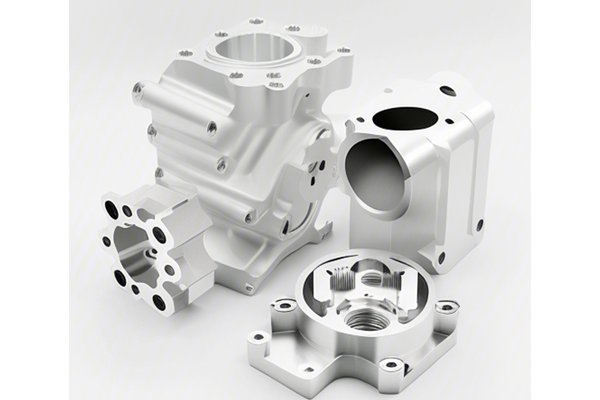Did you know that the CNC (Computer Numerical Control) machining industry is expected to grow by nearly 7% annually over the next decade? This growth is dominating the landscapes of manufacturing, aerospace, automotive, and medical devices, leading to high demand for skilled professionals. In the heart of this thriving industry lies one critical question: What kind of training is necessary for a successful career in CNC machining?
This blog aims to answer that question in detail, exploring the essential skills and training pathways required to excel in CNC machining.
—
Understanding CNC Machining
Before delving into the specifics of training, let’s take a moment to understand what CNC machining entails. CNC machining is a process that uses pre-programmed computer software to control machinery and tools. Specifically, CNC machinery can be used to automate processes like drilling, milling, and turning, allowing for precise manufacturing of parts and components.
This level of precision not only improves product quality but also creates a need for certified operators who understand both the mechanical aspects and the programming of CNC machinery. The role of a CNC machinist is both complex and rewarding, opening various pathways for career advancement in manufacturing and engineering fields.
Educational Pathway to CNC Machining
The foundational requirement for a career in CNC machining begins with a high school diploma or General Educational Development (GED) certificate. While this is basic, it’s essential for reading technical documents, understanding measurements, and grasping math concepts that are vital in machining.
Key Areas of Focus:
One of the most effective pathways into CNC machining is through vocational or technical schools. These institutions offer specialized programs focusing on machine operation, blueprint reading, and computer programming for CNC systems.
Key Components of Vocational Training:
For those looking to elevate their knowledge further, pursuing an Associate’s degree in CNC machining or manufacturing technology from a community college is a worthy option. An Associate degree provides a more extensive overview of engineering principles and technology application.
Typical Course Topics:
Specialized Training Programs
Beyond the foundational education and degree requirements, specialized training programs can enhance one’s qualifications and expertise in CNC machining.
Many manufacturing firms provide on-the-job training that complements formal education. This real-world experience is invaluable, as new hires learn the specifics of the machinery used in their workplace, company protocols, and safety standards.

The field of CNC machining is ever-evolving; hence the importance of continuous education cannot be stressed enough. Skill enhancement workshops, advanced certifications, and proficiency courses ensure machinists stay updated on new technologies and techniques.
Recommended Certifications:
Skill Development for CNC Machining
Being a successful CNC machinist goes beyond educational qualifications. Certain skills can significantly boost a machinist’s effectiveness and career prospects.
Technical proficiency in operating CNC machines and understanding tool and die work is essential. Learning programming languages such as G-code and M-code is critical for understanding how machinery performs tasks.
CNC machinists often encounter technical challenges such as programming errors or machine malfunctions. The ability to troubleshoot issues efficiently can minimize downtime and enhance productivity.
In CNC machining, even a minor error can lead to significant discrepancies in part dimensions. Paying close attention to detail is crucial, ensuring that measurements, tolerances, and specifications are adhered to.
Interpreting blueprints and technical drawings is a key aspect of the job. Strong analytical skills enable a machinist to visualize the finished product and work backward into the machining process, identifying potential issues before they arise.
Effective communication with team members, engineers, and management is vital. CNC machinists must articulate technical information clearly and seek clarification when needed.
The Future of CNC Machining Training
As technology progresses, the skills required in CNC machining are evolving. Automation and robotics are becoming integral parts of CNC operations. Thus, training programs must incorporate new technologies and trends to prepare machinists adequately.
As machines become more advanced, the emphasis will need to shift toward understanding software that controls CNC machinery. Training programs should focus on teaching software literacy alongside traditional machining skills.
Knowing how to work with robot-assisted CNC machines can provide a competitive edge. Future training programs must incorporate robotics to remain relevant in the market.
Incorporating sustainability practices into machining processes is becoming more paramount. Training programs can focus on techniques that reduce waste and energy consumption.
In summary, a successful career in CNC machining is built on a solid foundation of education, hands-on experience, and a commitment to continuous learning. By obtaining the necessary training and developing essential skills, aspiring machinists can position themselves for success in a growing industry.
This topic is crucial because as the manufacturing landscape evolves, the demand for skilled CNC machinists is only set to rise. By understanding the training pathways and skill requirements, you not only equip yourself for career opportunities but also contribute to the advancement of manufacturing technology.
As you reflect on your potential career in CNC machining, consider investing in your education, specializing your skills, and staying current with industry trends. The future is bright for those willing to embrace the journey!






